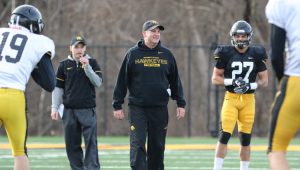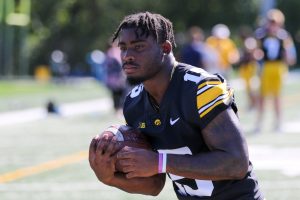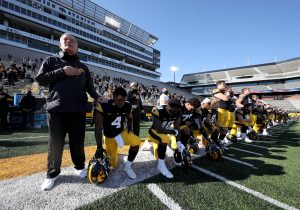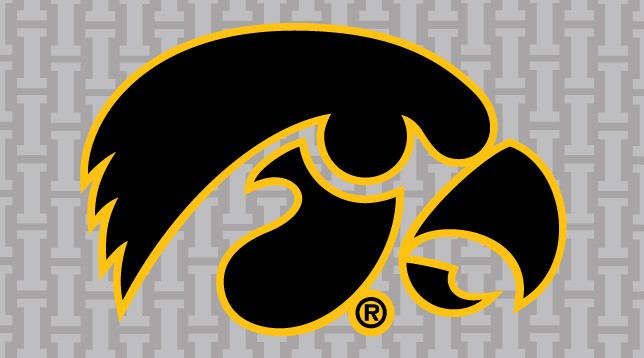Easy to overlook, or take for granted, what makes Iowa football unique
By Pat Harty
IOWA CITY, Iowa – Sometimes, it takes an outsider to help you truly appreciate what’s happening on the inside.
Because it’s easy to take for granted things that are important to you, like Hawkeye football for example.
For myself, and for most of my readers, Hawkeye football is a focal point.
We eat, drink and sleep Hawkeye football. It consumes our thoughts, but with that consumption comes a lack of appreciation for the many storylines that surround the program.
We sort of grow numb to it because the closer you are to something, the more ordinary it becomes.
But for an outsider, Hawkeye football, whose season starts this Saturday against Indiana at Kinnick Stadium, might seem far from ordinary.
I recently had a conversation with a person who has no connection to Hawkeye football whatsoever, but this person said some things that made an impression.
He pointed out that Iowa football is unique in so many ways, beginning with 66-year old head coach Kirk Ferentz, who is the longest tenured head coach in the country, the oldest head coach in the Big Ten, Iowa’s all-time winningest head coach with 168 wins, and the fourth all-time winningest coach in Big Ten history.
Our conversation got me to thinking about what else makes Iowa football unique, and there are plenty of examples.
Here’s a rundown:
Ferentz’s 38-year old son, Brian Ferentz, is also Iowa’s offensive coordinator, and a former Hawkeye offensive lineman under his father.

Ferentz’s defensive coordinator is Phil Parker, who is an original member of Ferentz’s staff at Iowa dating back to 1999, and is now recognized as one of the top defensive coordinators in the country.
Iowa has played 22 straight games without surrendering 25 points, the longest streak in the nation among Power Five teams.
Ferentz’s quarterback coach is 68-year old Ken O’Keefe, who previously served as Ferentz’s offensive coordinator from 1999 to 2011, and who used to be Ferentz’s boss when they both coached together at Worchester Academy in the late 1970s.
Iowa’s starting center is junior Tyler Linderbaum, who is widely regarded as the top player in the country at his position. Linderbaum came to Iowa from nearby Solon as a lightly recruited defensive tackle. He only had three scholarship offers, including one from Minnesota State.
Iowa starting kicker is 23-year old Caleb Shudak, who had to wait five years before finally seeing his name on top of the depth chart. Shudak’s father also kicked for Iowa State in the 1980s.
Iowa’s starting punter is 24-year old Tory Taylor, who is from Melbourne, Australia. Taylor never had punted in a football game before making his debut at Purdue last season. He then would go on to average 44.1 yards on 40 punts and was named the Big Ten Punter of the Year as a freshman.

Iowa’s starting running back is Georgia native Tyler Goodson, who was the first true freshman to ever lead Iowa in rushing, gaining 638 yards in 2019. Goodson is also the first Iowa running back since Fred Russell in 2003 to return after having made first-team All-Big Ten the previous season.
Iowa’s backup running back is fifth-year senior Ivory Kelly-Martin, who started six games in 2018, including the season opener. Kelly-Martin was also the first true freshman since 2010 to score two touchdowns in a game, accomplishing that in 2017 against North Texas.
Iowa’s running back coach is Ladell Betts, who is also Iowa’s second all-time leading rusher with 3,686 yards.
Iowa’s assistant defensive line coach is Jay Niemann, who is the father of former Iowa linebackers Ben and Nick Niemann, both of whom are now on NFL rosters.
Iowa is also unique from a tradition standpoint, including how the team takes the field just prior to kick-off with the players locking arms and jogging slowly in a group as a show of unity. This tradition, which is called the Swarm, was started by Ferentz’s predecessor, Hayden Fry.
And speaking of Hayden Fry, he and Ferentz are the only head coaches to lead a Division I football program for 20 years consecutively.

Iowa also has one of the best new traditions in college football called the Wave. At the end of the first quarter, fans in Kinnick Stadium, along with the players and coaches from both teams, and the officials, turn and wave to the patients at the University of Iowa Stead Family Children’s Hospital, which is across the street from the stadium.
The patients look out the window and wave back, creating a powerful moment that helps to put everything in perspective, even a gut-wrenching loss.
Kirk Ferentz and his wife, Mary, are strong supporters and advocates for the children’s hospital. They established the “Ferentz Family Pediatric Research and Education Endowment Fund in 2007. And in honor of their granddaughter, they donated more than $1 million in 2017 to establish the Savvy Elizabeth Ferentz Neonatology Research Fund.
In addition, the Iowa Ladies’ Football Academy, which was started by Mary Ferentz, has donated $2.5 million to the UI Stead Family Children’s Hospital.
Iowa is also barely one year removed from the racial unrest that rocked the football program last summer. Multiple former Iowa black players accused the program of racial disparities, and the accusations led to the dismissal of long-time strength and conditioning coach Chris Doyle.
And though the accusations tarnished Kirk Ferentz’s image, and brought shame and disappointment to the program, Ferentz is now determined to fix Iowa’s culture, and there are signs of that happening.

Many of the current black players say the culture is now more inclusive. Receiver Tyrone Tracy Jr. said the environment feels more like a home than a house, while Kelly-Martin said the black players no longer feel as if they’re walking on egg shells.
“It feels way better,” Tracy said earlier in the summer. “When you’re at home, you’re comfortable and you kick your feet up and you can walk around knowing that you’re not being judged.”
Iowa also recently named the field at Kinnick Stadium after Duke Slater, who was a star for Iowa’s 1921 undefeated team, a first-team All-American, and the first black lineman in the NFL, where he played for 10 seasons, earning All-Pro recognition seven times.
Slater earned his law degree in 1928 and began to practice law as a Chicago attorney. In 1948, he was elected to the Cook County Municipal Court, becoming just the second African-American judge in Chicago history.
This season marks the 100-year anniversary of Iowa’s 1921 Big Ten champion team, and though it hasn’t been announced yet, the team is expected to be honored before the Penn State game on Oct. 9 at Kinnick Stadium.
This season also marks the 40-year anniversary of Iowa’s 1981 Big Ten champion team under Hayden Fry. The 1981 season was the first time since 1967 that a team other than Ohio State or Michigan represented the Big Ten in the Rose Bowl.
Saturday’s season opener will mark just the second time that Iowa and Indiana have faced each other as ranked teams, and the first time since 1991.



